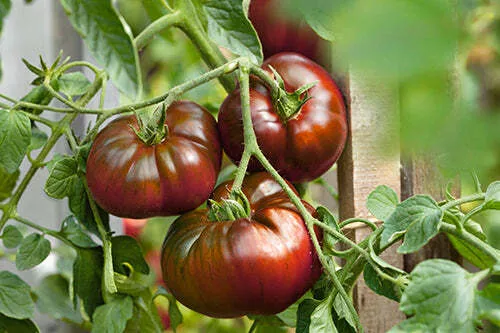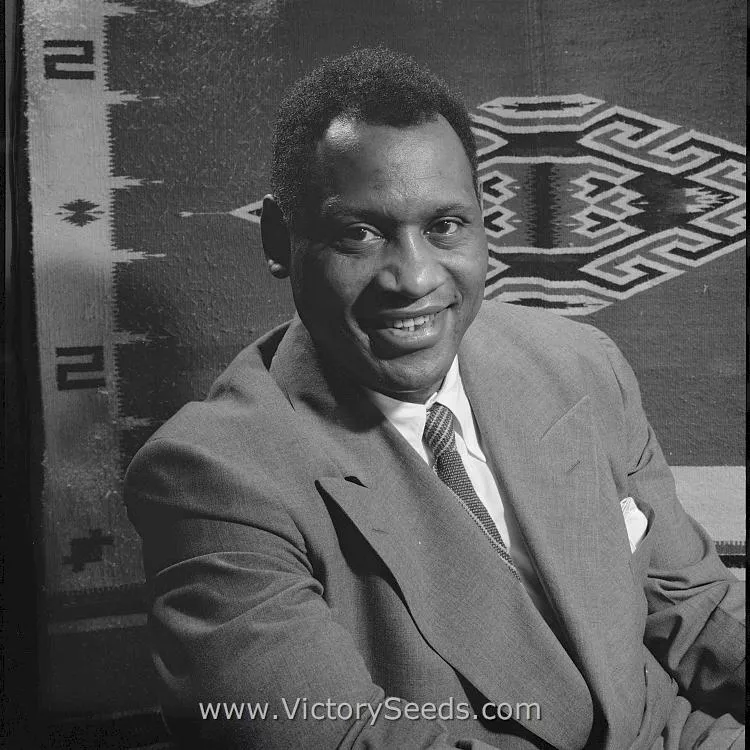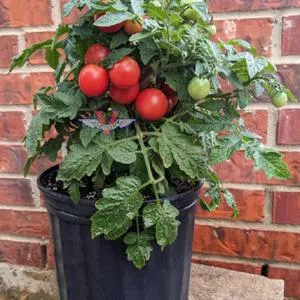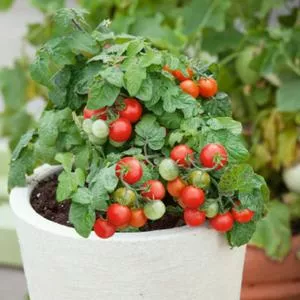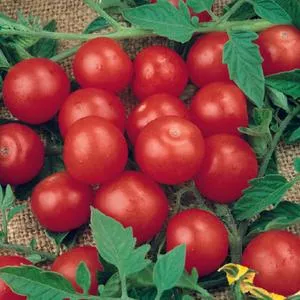

Paul Robeson Tomato
Price: $4.45
SKU: 3403021'Paul Robeson' is an old Russian variety named after the African-American actor, singer and civil rights activist, Paul Robeson (1898-1976). It was because of his activism and the unyielding position that he took during the McCarthy-era, that he became a hero in the Soviet Union.
Initially introduced to American seed savers in the mid-1990s by Marina Danilenko, a pioneering private seed seller from Moscow during the Perestroika-era (see below).
Marina and her mother began by buying seeds from this network and then paying retirees to fill her seed packets. She began advertising her company in newspapers and magazines, gardeners would send her their names and addresses, then a price list was sent for people to use to place orders. The business exploded! Within the first couple of years, they were mailing price lists to about 80,000 Russian gardeners and selling about 500,000 seed packets via mail-order. In this recently post-Soviet society, the postal service was corrupt, she incurred considerable loss, but she pushed on.
In 1992, Marina reached out to the Moscow branch of the famous Vavilov Institute to grow out some of her vegetable seed stock. She described that, "... the staff is highly professional, their seeds are finest quality, and the Institute certainly needs the money."
About this time, the Seed Savers Exchange sponsored her to come to the United States for visits two years in a row. Here she was able to learn how American mail order seed companies operated, which was critically important considering that the Russian people at that time had no context or informational resources on how to successfully operate a business in a post-communist economy.
By 1993, Marina had supplied at least 170 different Russian tomato varieties into the Seed Savers Exchange's collection. Included in these were some of the first black fruited tomatoes such as 'Paul Robeson' and 'Black from Tula', as well as other popular varieties such as 'Orange Banana' and 'Silvery Fir Tree'.[1]
Color: Black
Special Groups: "Epic" Tomatoes
Harvest Timing: Main Crop / Mid-Season
Genetic Classification: Open Pollinated
Full light and cooler temps (60° to 70°) will help to prevent the seedlings from becoming too leggy. If plants become rootbound before you can safely set them into the ground, transplant them into larger pots.
Harden off plants before planting outside. Young plants are very susceptible to frost and sunburn damage. Avoid too much nitrogen. Water evenly but not in excess.
Click here to view our full tomato growing guide.
- "Rescuing Traditional Food Crops in Eastern Europe and the Former Soviet Union," Transcript of a speech given by Kent Whealy at 1993 Seed Savers Exchange's annual Campout.
Customer Reviews:
By Frantini (Marin County) on October 3, 2023
This is the second year that I planted this tomato. It is a prolific producer, still producing in October! The tomatoes are a great size for slicing and the flavor is fabulous. The original packet of seeds I received had almost a 100% germination rate. Now, my self-harvested seeds have the same rate. I will also have at least one if not ten of these plants.
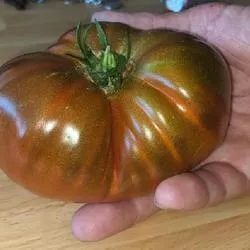
By Karen Kline on November 24, 2018
I've grown these for two years now, and love them. They are very sweet. I like to cut one up and use it in Nongshim Ramen ... quick, easy, healthy dinner.
By Allison Whitacre on August 26, 2018
After a lot of research and drooling over photos I decided to pursue the Paul Robeson in my 2018 garden. From the start the plants were healthy and strong, and survived transplanting without a wilted leaf unlike some of my more finicky varieties. They set fruit early on and the fruit ripened quickly despite our season being very odd this year. The most important part: taste, did not disappoint. This is hands down one of the best tomatoes I've ever had if not number one. Rich, tangy, smoky, it's like a circus of flavor profiles. The plant set its first batch of fruit and the plant seemed to wither a bit, before setting another round of even more sizeable and beautiful fruits. Overall I have been very impressed with my gamble and I think I will retain the Paul Robeson in my tomato rotation! Thanks Victory!

